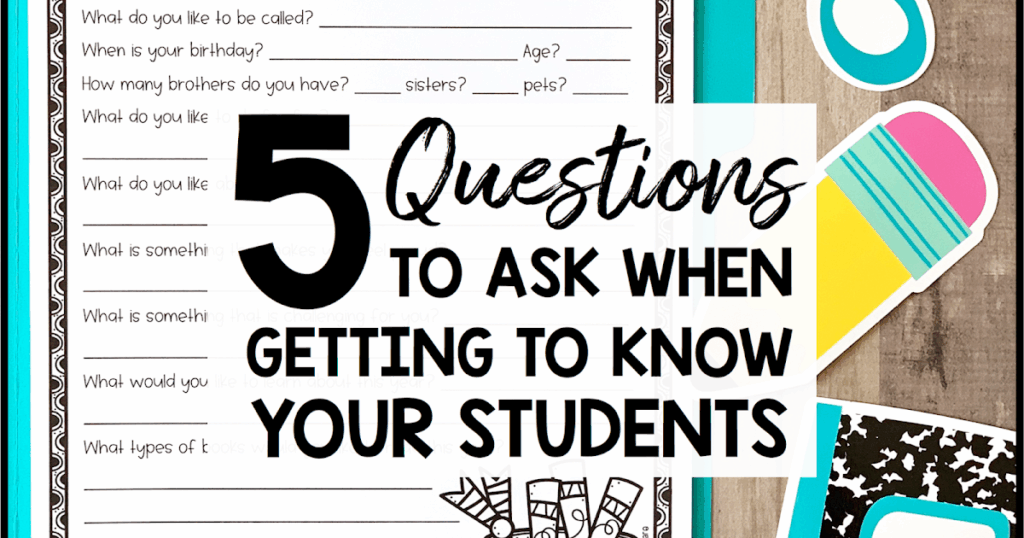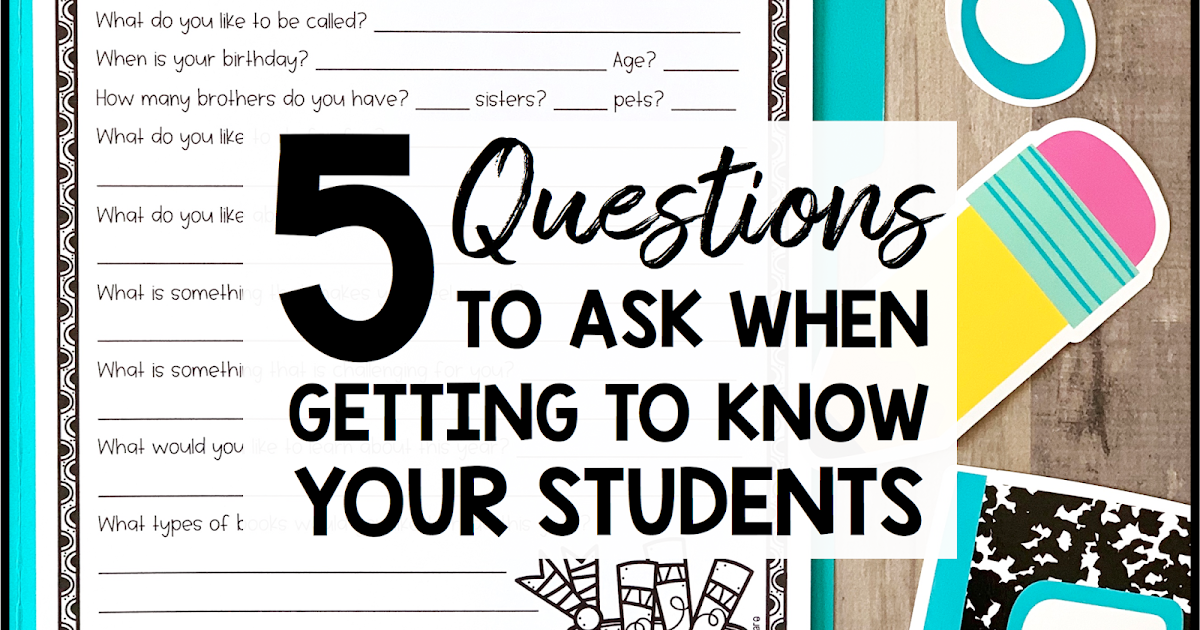
Unlocking Connections: Getting to Know You Questions for Kids
Building strong relationships with children involves more than just being present; it requires genuine connection and understanding. One of the most effective ways to foster this connection is through asking thoughtful, engaging, and age-appropriate getting to know you questions for kids. These questions open doors to their inner world, revealing their interests, dreams, and perspectives. This article explores a variety of getting to know you questions for kids, offering practical tips and insights to help you initiate meaningful conversations and build lasting bonds.
Why Getting to Know You Questions Matter
In our fast-paced world, carving out time for genuine interaction can be challenging. However, investing in these moments with children yields significant benefits. Getting to know you questions for kids serve several crucial purposes:
- Building Rapport: These questions create a safe and comfortable space for children to share their thoughts and feelings.
- Encouraging Communication: They stimulate conversation and help children develop their communication skills.
- Discovering Interests: You gain valuable insights into their passions, hobbies, and aspirations.
- Promoting Self-Reflection: These questions encourage children to think about themselves, their values, and their place in the world.
- Strengthening Relationships: By showing genuine interest, you demonstrate care and build a foundation of trust.
Age-Appropriate Questions: A Guide
The key to successful conversations lies in tailoring your questions to the child’s age and developmental stage. What works for a preschooler will differ significantly from what resonates with a teenager. Here’s a breakdown of age-appropriate getting to know you questions for kids:
Preschoolers (Ages 3-5)
Focus on simple, concrete questions that tap into their immediate experiences and imagination.
- What is your favorite color and why?
- What is your favorite animal?
- What makes you happy?
- What is your favorite thing to play with?
- If you could have any superpower, what would it be?
Early Elementary (Ages 6-8)
Introduce questions that explore their interests, friendships, and school experiences.
- What is your favorite subject in school?
- Who are your best friends?
- What is your favorite book or movie?
- What do you like to do outside?
- If you could travel anywhere in the world, where would you go?
Late Elementary/Middle School (Ages 9-13)
Encourage deeper thinking about their values, goals, and perspectives.
- What are you good at?
- What is something you are proud of?
- What is something you would like to learn?
- What is important to you in a friend?
- If you could change one thing about the world, what would it be?
Teenagers (Ages 14-18)
Engage in more complex and nuanced conversations about their future, relationships, and identity. These getting to know you questions for kids are designed to foster trust and communication during a challenging period.
- What are your goals for the future?
- What are you passionate about?
- What do you value most in a relationship?
- What are some challenges you are facing?
- What is something you have learned recently?
Creative and Engaging Questions
Beyond the standard questions, consider incorporating creative prompts to spark imagination and deeper reflection. These getting to know you questions for kids can be especially effective in group settings or as conversation starters during family meals.
- If you could have dinner with any historical figure, who would it be and why?
- If you could create a new holiday, what would it be and how would people celebrate it?
- If you could invent something that would make the world a better place, what would it be?
- If you could live in any fictional world, which one would you choose and why?
- What is the most adventurous thing you have ever done?
Tips for Asking Effective Questions
Asking the right questions is only half the battle. How you ask them and how you respond to the answers are equally important. Here are some tips for maximizing the impact of your getting to know you questions for kids:
- Listen Actively: Pay attention not only to what they say but also to their body language and tone of voice.
- Be Present: Put away distractions and give them your undivided attention.
- Ask Open-Ended Questions: Avoid questions that can be answered with a simple “yes” or “no.”
- Show Genuine Interest: Let them know that you truly care about what they have to say.
- Avoid Judgment: Create a safe space where they feel comfortable sharing their thoughts and feelings without fear of criticism.
- Follow Up: Remember what they tell you and ask about it later. This shows that you are listening and that you care.
- Share Your Own Experiences: Reciprocity is key to building relationships. Share your own stories and experiences to create a sense of connection.
- Be Patient: Some children may take longer to open up than others. Be patient and persistent, and eventually, they will feel comfortable sharing more.
Incorporating Questions into Daily Life
You don’t need a special occasion to ask getting to know you questions for kids. Incorporate them into your daily routine to foster ongoing communication and connection. Here are some ideas:
- During Meal Times: Use meal times as an opportunity to spark conversation. Ask each family member a question to share.
- During Car Rides: Turn travel time into quality time by asking questions and engaging in conversation.
- Before Bed: Ask a question or two before bedtime to wind down and connect before sleep.
- During Playtime: Integrate questions into your playtime activities to make learning and connection fun.
- During Downtime: Use quiet moments to connect and ask meaningful questions.
The Power of Continued Connection
Asking getting to know you questions for kids is not a one-time event; it’s an ongoing process. As children grow and change, their interests, values, and perspectives evolve. By consistently engaging in meaningful conversations, you can stay connected to their inner world and build a strong, lasting relationship. Remember, the goal is not just to gather information but to create a genuine connection based on mutual respect, understanding, and love. These questions serve as a bridge, connecting you to the heart and mind of the child, fostering a bond that will endure through the years. By using these getting to know you questions for kids, you can make a lasting impact on their lives, creating a supportive and loving environment where they can thrive.
Beyond the Basics: Deepening the Conversation
Once you’ve established a comfortable rapport, you can delve into more profound and meaningful conversations. These getting to know you questions for kids can help you explore their values, beliefs, and perspectives on the world.
- What is something you are grateful for?
- What is something you have learned from a mistake?
- What is something you would like to change about yourself?
- What is something you believe in?
- What is something you are afraid of?
The Importance of Nonverbal Communication
Remember that communication is not just about words. Pay attention to nonverbal cues, such as body language, facial expressions, and tone of voice. These cues can provide valuable insights into a child’s feelings and thoughts. Be mindful of your own nonverbal communication as well, as it can impact how a child perceives your questions and your interest in their answers. Maintaining eye contact, nodding your head, and using a warm and inviting tone can help create a more comfortable and supportive environment for conversation.
Adapting to Different Personalities
Every child is unique, and some may be more reserved or introverted than others. It’s important to adapt your approach to suit their personality. If a child is shy or hesitant to answer questions, start with simpler, less personal questions and gradually work your way up to more complex topics. Avoid putting pressure on them to answer if they are not comfortable. Instead, create a safe and supportive environment where they feel free to share at their own pace. Remember, building trust takes time, and patience is key.
Conclusion: Building Bridges Through Questions
In conclusion, getting to know you questions for kids are a powerful tool for building strong relationships, fostering communication, and promoting self-reflection. By tailoring your questions to their age and personality, listening actively, and creating a safe and supportive environment, you can unlock their inner world and build a lasting bond. So, take the time to ask these questions, listen to the answers, and connect with the children in your life on a deeper level. The rewards will be immeasurable.
[See also: The Importance of Active Listening for Parents]
[See also: Creative Activities to Bond with Your Child]
[See also: How to Encourage Open Communication with Teenagers]

